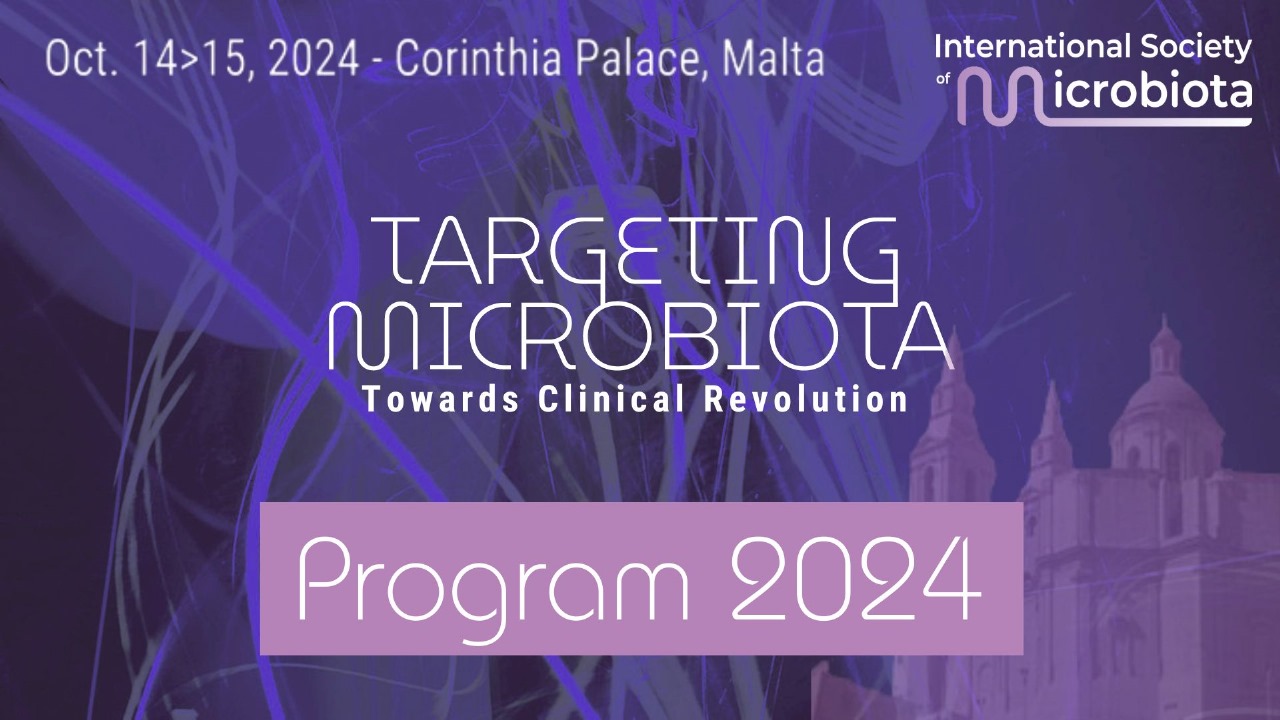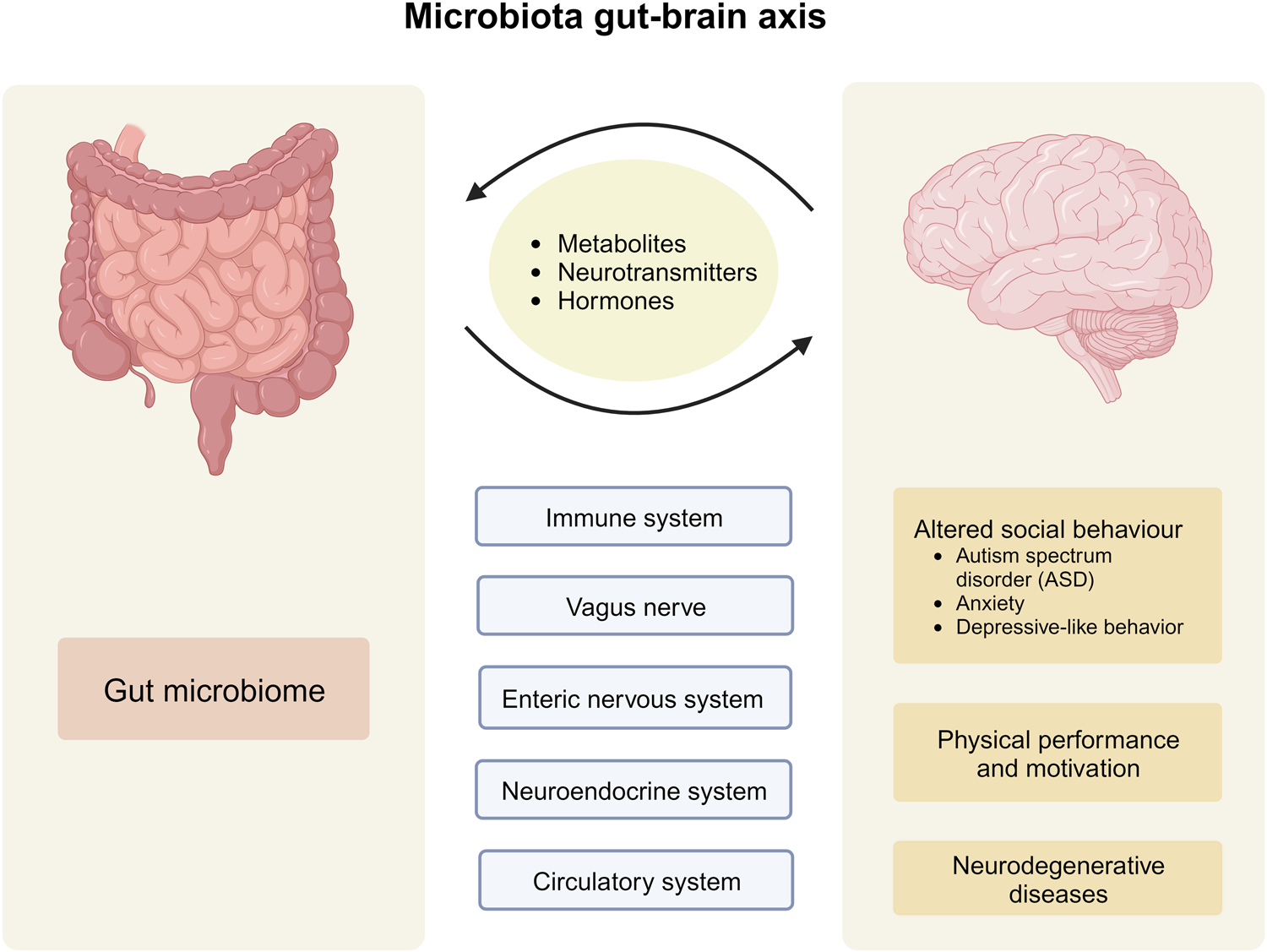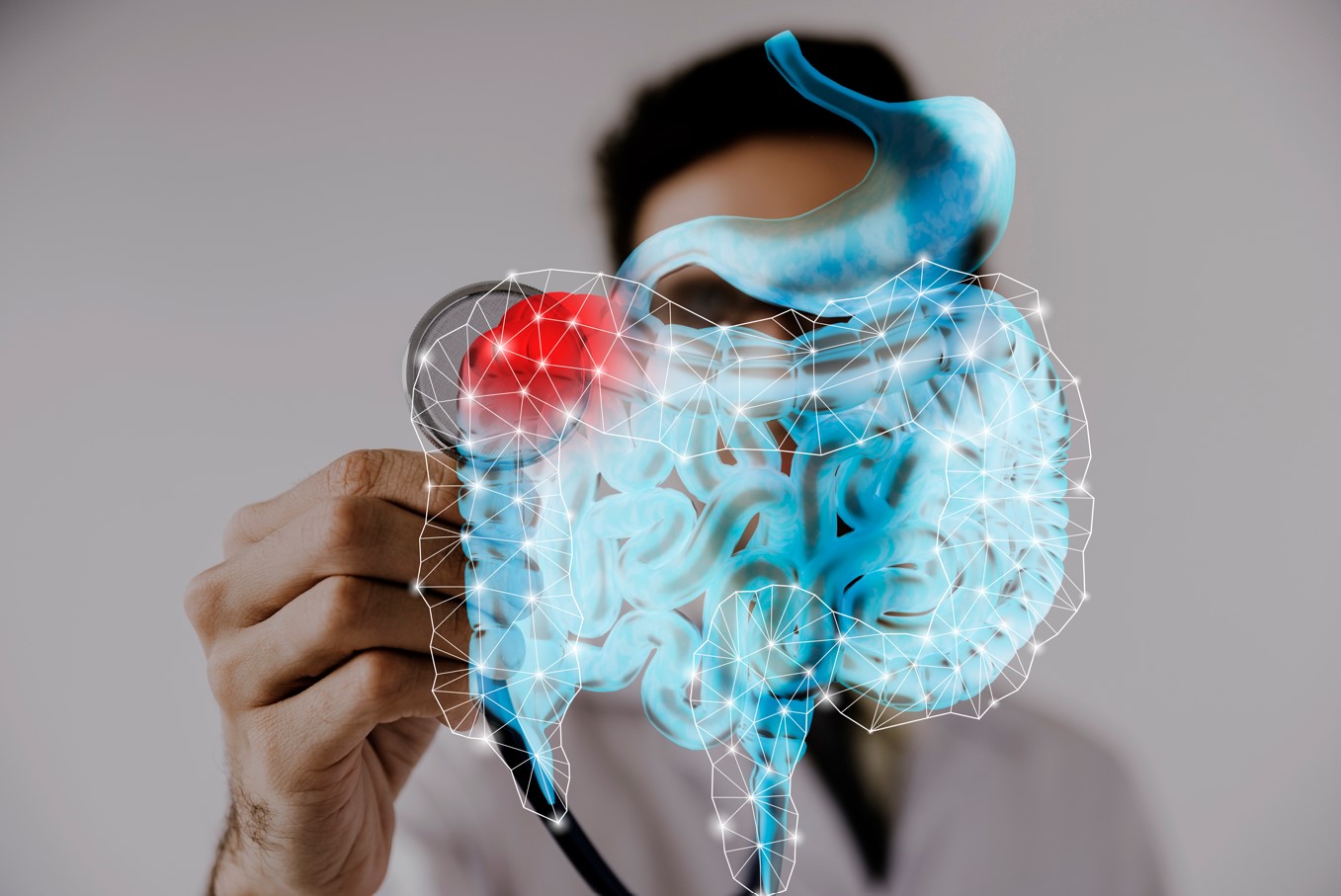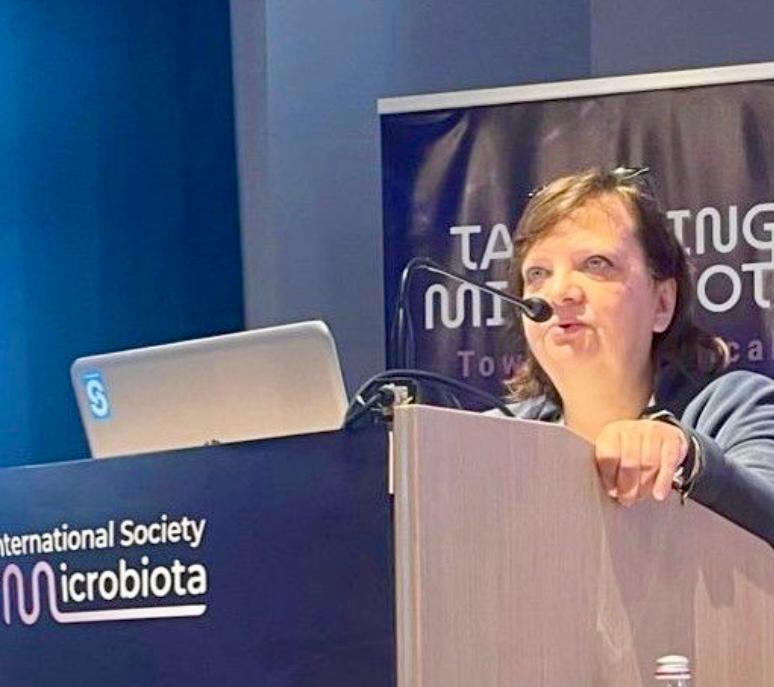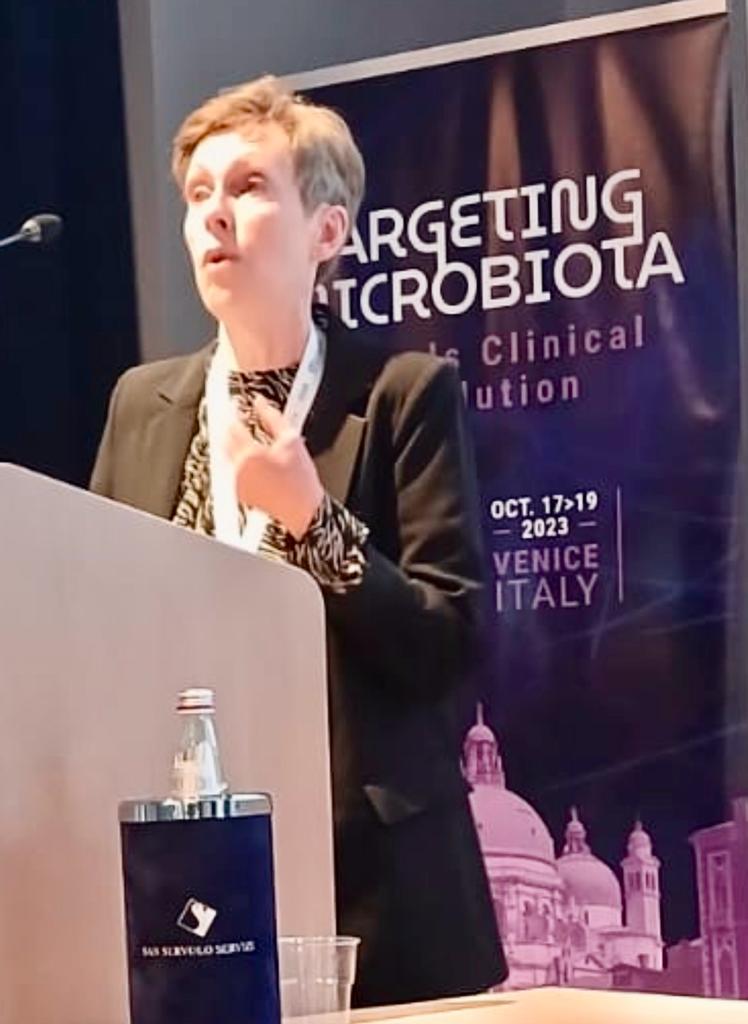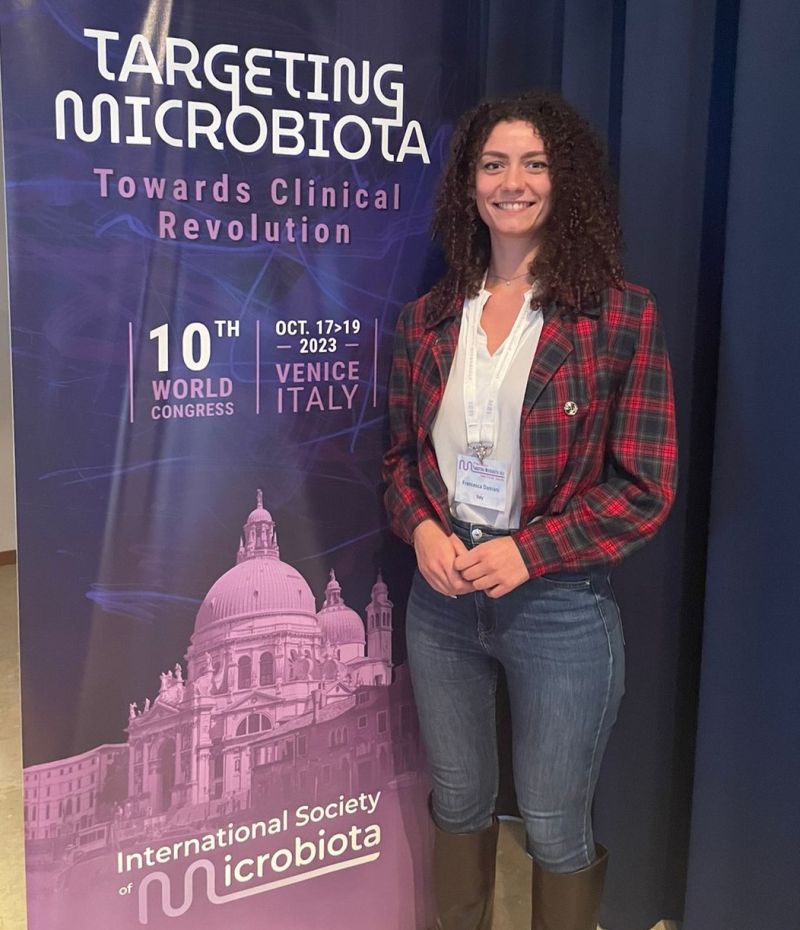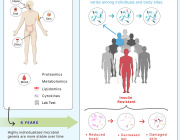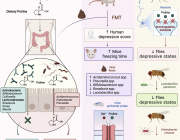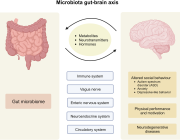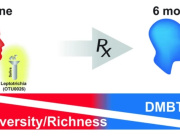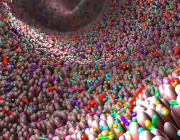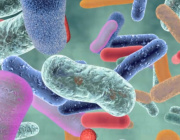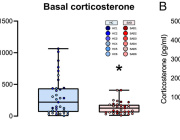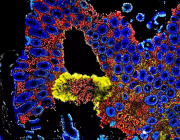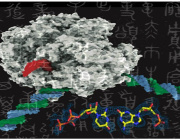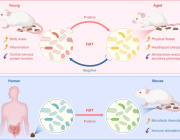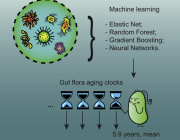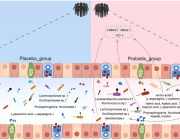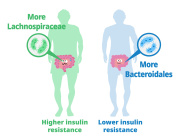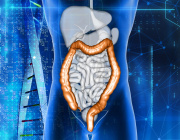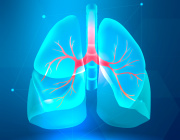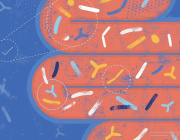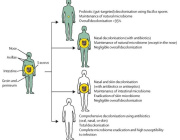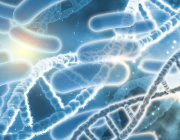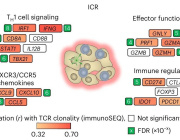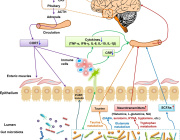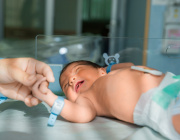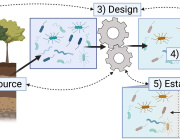Alerts
Special session on Built Environment Microbiome
Scientific commitee will dedicate a full session related to the Built Environment Microbiome during the Congress.
 During the 7th World Congress on Targeting Microbiota scheduled on October 10-11, 2019 at the Park Inn Hotel - Krakow, Poland, the Scientific commitee will dedicate a full session related to the Built Environment Microbiome.
During the 7th World Congress on Targeting Microbiota scheduled on October 10-11, 2019 at the Park Inn Hotel - Krakow, Poland, the Scientific commitee will dedicate a full session related to the Built Environment Microbiome.
Prof. Dr. Markus Egert from Furtwangen University, Germany will chair this session.
The International Society of Microbiota (ISM) also decided to discuss the using of Microbiomics for forensic sciences. In particuliar the Forensic human identification with targeted microbiome markers.
For more information: www.microbiota-site.com
microRNA in host-microbiome interaction and probiotics
Prof. Elena M Comelli will talk about "microRNA in host-microbiome interaction and probiotics".

Prof. Elena M Comelli from University of Toronto, Canada will join the 7th World Congress on Targeting Microbiota scheduled on October 10-11, 2019 at the Park Inn Hotel - Krakow, Poland.
Her presentation is one of many presentations which is dedicated for a session related to the Built Environment Microbiome.
The International Society of Microbiota (ISM) also decided to discuss the using of Microbiomics for forensic sciences, in particuliar the Forensic human identification with targeted microbiome markers.
For more information: www.microbiota-site.com
Hyaluronan, a new neuroimmune modulator of the microbiota-immune-gut-axis
 Dr. Cristina Giaroni from University of Insubria, Italy will give presentation entitled "Hyaluronan, a new neuroimmune modulator of the microbiota-immune-gut-axis".
Dr. Cristina Giaroni from University of Insubria, Italy will give presentation entitled "Hyaluronan, a new neuroimmune modulator of the microbiota-immune-gut-axis".
Summary of talk: "The gut saprophytic commensal flora has a fundamental role in the modulation of several local functions including regulation of host immune system and defense against pathogenic microorganisms. Alterations in the symbiotic relationship between the microbiota and the enteric microenvironment underlays development of complex gut disorders such as chronic inflammatory disease (IBD). In recent years, we have focused on hyluronan (HA), an unbranched glycosaminoglycan (GAG) component of the extracellular matrix, as a new molecular player involved in neuroadaptive changes of enteric neuronal circuitries in the inflamed gut. The GAG is a key molecule mediating the host immune response to commensal and pathogenic bacteria by binding to toll-like receptors, TLR2 and 4. Since both TLRs have been localized to enteric neurons and may regulate intestinal inflammation by controlling enteric nervous system (ENS) structural and functional integrity, HA represents a potential molecular tool involved in development of myenteric neural plasticity by tuning adaptive signals at the intersection between the microbiota-innate immunity axis and ENS. This hypothesis is innovative and opens new scenarios in the study of the molecular mechanism involved in the onset and severity of bowel diseases as well as for the development of new therapeutic agents for the treatment of diseases with clinical and social impact, all with underlying derangements of the microbiota-immune-gut axis, such as IBD."
All results and perspectives will be highlighted during the 7th World Congress on Targeting Microbiota whcih will be organized in Park Inn Hotel - Krakow, Poland, on October 10 - 11, 2019.
For more information: www.microbiota-site.com
Gut microbiota and graft-versus-host disease in patients after bone marrow transplantation. FMT as a prevention or treatment?

For more information: www.microbiota-site.com
Metabolic and Metagenomic Consequences of E. coli Infections
 The Scientific Committee of Targeting Microbiota 2019 Congress invited Dr. Matteo Serino from Inserm and Digestive Health Research Institute, France.
The Scientific Committee of Targeting Microbiota 2019 Congress invited Dr. Matteo Serino from Inserm and Digestive Health Research Institute, France.
Dr. Serino will give a presentation entitled "Metabolic and Metagenomic Consequences of E. coli Infections".
Summary of Presentation: A dietary fat enrichment is among the strongest factors impacting on gut microbiota on a both structural and functional level, as well known as inducer of metabolic diseases such as obesity, type 2 diabetes and hepatopathology. Interestingly, an alimentary switch towards the high-fat content has been also shown capable of favouring the colonisation of the intestine by enterobacteria. Among the latters are pro-inflammatory and/or genotoxic E. coli strains. The metabolic consequences of the infections by these bacteria in mice will be discussed in relation to a lean vs. an obese/diabetic host, together with changes in the gut microbiota and microbiome.
For more information: www.microbiota-site.com
Risk for Diabetes and Cardiovascular diseases in the Qatari population: can the salivary microbiome predict it?
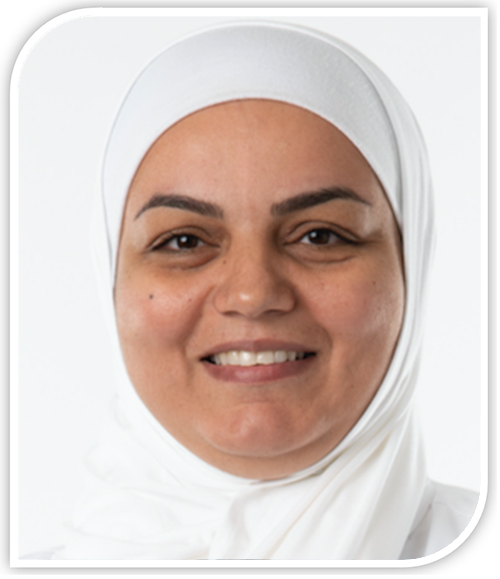 Dr. Souhaila Al Khodor from Sidra Medical and Research Center, Qatar will join the 7th World Congress on Targeting Microbiota and speak about "Risk for Diabetes and Cardiovascular diseases in the Qatari population: can the salivary microbiome predict it?" during the Targeting Microbiota 2019 Congress which will be held in Park Inn Hotel - Krakow, Poland, on October 10 - 11, 2019.
Dr. Souhaila Al Khodor from Sidra Medical and Research Center, Qatar will join the 7th World Congress on Targeting Microbiota and speak about "Risk for Diabetes and Cardiovascular diseases in the Qatari population: can the salivary microbiome predict it?" during the Targeting Microbiota 2019 Congress which will be held in Park Inn Hotel - Krakow, Poland, on October 10 - 11, 2019.
Dr. Al Khodor highligthed: "During the Congress I will discuss whether the salivary microbiome composition can predict whether individuals are predisposed to cardiovascular disease or diabetes."
Cardiovascular diseases (CVD) and diabetes are estimated to account for 69% of death in Qatar. Since saliva is an easily accessible sample, not invasive, it is usually easy to collect from subjects, hence, we plan to assess whether salivary microbiome can be used as a tool to predict those diseases.
Dr. Al Khodor and her team will calculate the CVD score and record the diabetes status (prediabetic, diabetic or non-diabetic) of the study subjects. Then assess the salivary microbiome composition using 16S rRNA gene sequencing and correlate the microbiome data with the phenotypic and clinical data.
The preliminary data will be presented during Targeting Microbiota 2019 Congress.
For more information: www.microbiota-site.com
Brain-Gut-Microbiota Axis in Alzheimer’s Disease
 Prof. Agata Mulak, Associate Professor of Medicine from Wroclaw Medical University, Poland will join the 7th World Congress on Targeting Microbiota which will be organized in Park Inn Hotel - Krakow, Poland, on October 10 - 11, 2019 and speak about her research on "Brain-Gut-Microbiota Axis in Alzheimer’s Disease".
Prof. Agata Mulak, Associate Professor of Medicine from Wroclaw Medical University, Poland will join the 7th World Congress on Targeting Microbiota which will be organized in Park Inn Hotel - Krakow, Poland, on October 10 - 11, 2019 and speak about her research on "Brain-Gut-Microbiota Axis in Alzheimer’s Disease".
For more information: www.microbiota-site.com
Intestinal barrier, gut microbiota and psoriasis
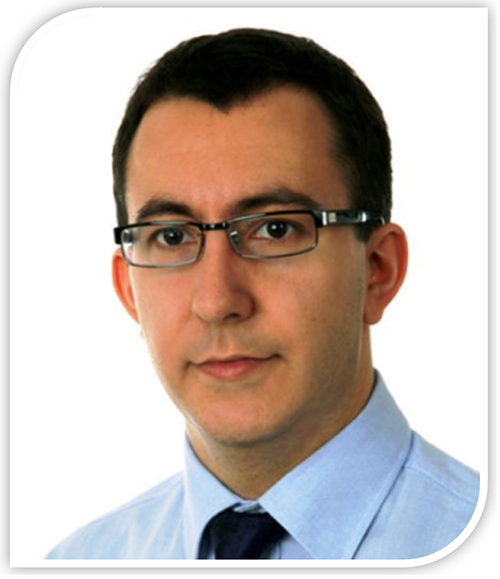 Dr. Mariusz Sikora from Medical University of Warsaw, Poland will join the 7th World Congress on Targeting Microbiota which will be organized in Park Inn Hotel - Krakow, Poland, on October 10 - 11, 2019 and speak about his research on "intestinal barrier, gut microbiota and psoriasis".
Dr. Mariusz Sikora from Medical University of Warsaw, Poland will join the 7th World Congress on Targeting Microbiota which will be organized in Park Inn Hotel - Krakow, Poland, on October 10 - 11, 2019 and speak about his research on "intestinal barrier, gut microbiota and psoriasis".
For more information: www.microbiota-site.com
Call for Scientific Abstracts & Innovations
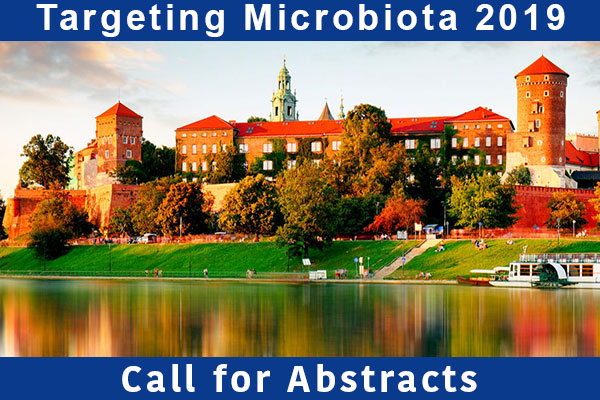 The Scientific Committee of the International Society of Microbiota invites all scientists, academics and industrials to present their researches in microbiota area during the 7th World Congress on Targeting Microbiota, which will be held in Krakow, Poland, next October, 2019.
The Scientific Committee of the International Society of Microbiota invites all scientists, academics and industrials to present their researches in microbiota area during the 7th World Congress on Targeting Microbiota, which will be held in Krakow, Poland, next October, 2019.
If you wish to be an Invited Speaker, please send a short abstract and CV.
We remind you the key dates of this international meeting:
- Deadline for Oral Presentations Submission: September 12, 2019
- Deadline for Poster Presentations Submission: September 28, 2019
For all information about ISM Targeting Microbiota World Congress: www.microbiota-site.com
Prof. Jan Mazela, Poznan University of Medical Sciences awarded by International Society of Microbiota
Press release - December 12, 2018, Tokyo, Japan:
International Society of Microbiota (ISM) announces the winner of the prestigious award for his exceptionnal scientific and medical contribution for the year 2018, Prof. Jan Mazela from Poznan University of Medical Sciences, Poland.
Concluding remarks of 6th World Congress on Targeting Microbiota

It was a great pleasure for me to organize together with Marvin Edeas the annual 6th World Congress on Targeting Microbiota in Porto on October 28-30, 2018. I think that the conference was very well organized both logistically and in terms of its scientific content.
The Poster Presentation award was discerned to Tina Jaenicke
During the Targeting Microbiota 2018 congress, the Scientific Committee awarded Tina Jaenicke from German Institute of Human Nutrition, Germany for her Poster Presentation:
The Special Poster Presentation award was delivered to Deborah Lynn Amos
During the Targeting Microbiota 2018 congress, the Scientific Committee awarded Deborah Lynn Amos from Marshall University, USA for her Poster presentation entitled "Synergistic effects of sports, antioxidant and microbiota".
The Short Oral Contribution award was delivered to Dr. Julie Reygner
During the Targeting Microbiota 2018 congress, the Scientific Committee awarded Dr. Julie Reygner from Université Paris Descartes - Faculté de Pharmacie, France for her Short Oral communication entitled "A new freeze-dried formulation to conserve stools over 12 months for fecal transplantation".
Microbiota & Medicine of Tomorrow - The Revolution: Comments by Prof. Marvin Edeas
The chairman of the scientific committee of the International Society of Microbiota (ISM), Prof. Marvin Edeas (Institut Cochin, Université Paris Descartes, France), explained the new topics of the 7th edition of Targeting Microbiota. The Microbiota and microbiome transforming deeply our understanding of Medicine of tomorrow. It is really a revolution which allow us to re-think and re-design our strategies about the way we will prevent and treat many diseases and pathologies.
Among the strategic questions which will debated:
- how all big data generated by microbiota sequencing can be used?
- Can we talk about Artificial Intelligence and microbiota medicine?
Other topics which are important to discuss with the scientific committee are the many tests and devices in the market (which target the general public) to collect, sequence and analyse human (and animals) Microbiota. They propose systematically the utilisation of huge amount of probiotics and products.
Prof. Peter C. Konturek - President of ISM will highlight many questions during the 7th edition of Targeting Microbiota 2019.
- Can we modulate the quality and diversity of human microbiota?
- How to induce durable beneficial changes in gut microbiota?
- Where is the red line of the gut microbiota manipulation?
- What are the strategic mediators of gut microbiota?
- How to understand better the role of bacterial metabolites?
- What is the perfect microbiota "signature" and how to use it as a biomarker to "predict" and/or treat many diseases?
- What is the influence of gut microbiota on the development and progression of chronic diseases?
Order the Abstracts book of Targeting Microbiota 2018 Congress
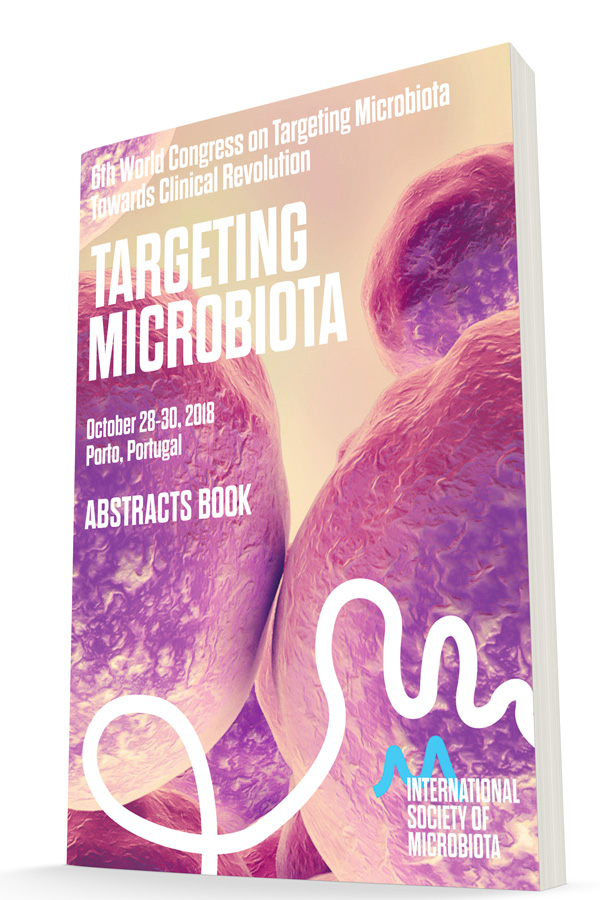 The Abstracts Book of Targerting Microbiota 2018 are available for order. The Abstracts Book contains all the Major, Short and Poster presentation presented during the congress.
The Abstracts Book of Targerting Microbiota 2018 are available for order. The Abstracts Book contains all the Major, Short and Poster presentation presented during the congress.
If you cannot participate to the congress and you would like to order the abstracts book, please click here. ![]()
Microbiota sequencing, Big Data interpretation and Artificial Intelligence: myth or reality?
 Among the hot topics of Targeting Microbiota 2018 will be Microbiota and Artificial Intelligence. The aim of this discussion is to connect all the key actors involved in microbiota assessment and analysis: mathematician, computer scientists, bioinformatician, clinician, academics and industrials in order to initiate the discussion about sequencing, big data generating and how to integrate artificial intelligence into microbiota analysis interpretation.
Among the hot topics of Targeting Microbiota 2018 will be Microbiota and Artificial Intelligence. The aim of this discussion is to connect all the key actors involved in microbiota assessment and analysis: mathematician, computer scientists, bioinformatician, clinician, academics and industrials in order to initiate the discussion about sequencing, big data generating and how to integrate artificial intelligence into microbiota analysis interpretation.
Exploring the role of gut dysbiosis in neuroinflammation and hypertension
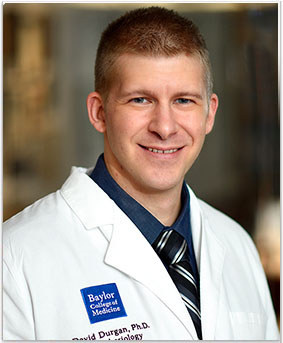 Prof. David Durgan from Baylor College of Medicine, USA will give a strategic presentation during the 6th World Congress on Targeting Microbiota 2018 about "Exploring the role of gut dysbiosis in neuroinflammation and hypertension" during the congress.
Prof. David Durgan from Baylor College of Medicine, USA will give a strategic presentation during the 6th World Congress on Targeting Microbiota 2018 about "Exploring the role of gut dysbiosis in neuroinflammation and hypertension" during the congress.
According to Prof. Durgan: "Hypertension is one of the most prevalent risk factors for the development of cardiovascular disease. We have demonstrated that multiple models of hypertension exhibit gut dysbiosis, and that dysbiosis plays a causal role in the development of hypertension. We have found that this involves neuroinflammation, and are currently examining a potential microbiota-gut-brain axis involved in blood pressure regulation. Our studies demonstrate that treatments to prevent or reverse gut dysbiosis may be valuable in the treatment of hypertension."
To know more about Targeting Microbiota 2018 Congress: www.microbota-site.com
Role of microbes in stem cells transplantation related complication
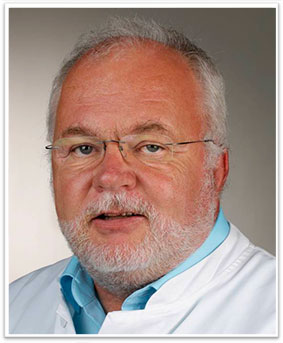
Prof. Ernst Holler from University Hospital Regensburg, Germany will join the 6th World Congress on Targeting Microbiota 2018 and will talk about "Role of microbes in stem cells transplantation related complication" during the congress.
Summary of presentation: "Haematopoietic stem cell transplantation is a curative treatment optionin patients with leukemia but can be complicated by life threatenningGraft-versus-Host Disease (GvHD) especially in the gastrointestinal (GI)tract. In the last 5 years, early and severe disruption of theintestinal microbiota has been identified as a major risk factor ofGI-GvHD. Broad spectrum antibiotics applied for neutropenic infectionsbut also destruction of Paneth cells by GvHD itself are major factorsresulting in dysbiosis which strongly enhances intestinal inflammationinduced by donor cells. Lack of protective metabolites such as shortchain fatty acids and indoles produced by commensal explains thisassociation but direct microbiota – T cell interactions maycontribute. Restoration of a protective microbiome may become analternative approach for treatment and prevention of GI-GvHD."
To know more about Targeting Microbiota 2018 Congress, please check the Agenda here
Individual differences in the microbiome and metabolome during circadian misalignment and sleep restriction

Prof. Kenneth Wright from the University of Colorado Boulder, USA will give a short oral presentation on Individual differences in the microbiome and metabolome during circadian misalignment and sleep restriction: associations with the ability to maintain wakefulness during 6th World Congress on Targeting Microbiota 2018 Congress which will be held in Porto, on October 28-30, 2018.
Summary of presentation: "Circadian and sleep disruption are common in modern society with round the clock work operations in shift-workers and due to many people sleeping less than the recommended amount of hours each night. Circadian misalignment—behaviors such as wakefulness-sleep and energy intake-fasting that occur at inappropriate internal biological times—and sleep loss are ideal conditions under which to study the microbiota-gut-brain axis as circadian misalignment and sleep loss are associated with gastrointestinal distress, metabolic dysregulation, and cognitive impairment. Findings from a study aimed to determine the influence of circadian and sleep disruption on 1) the microbiota-gut-brain axis, 2) the stability of individual differences in the microbiome, the microbiome metabolome, and human host physiology/behavior, and 3) associations between alterations in microbiome metabolome with an objective measure of alertness will be presented."
For more information: www.microbiota-site.com
Sepsis and microbiota : obstacles, recent advances and strategies
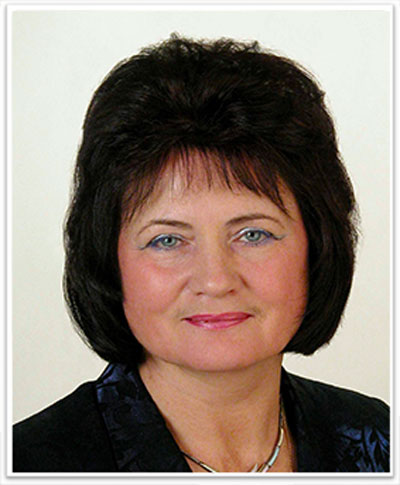
Dr. Natalia Beloborodova from Negovsky Research Institute of General Reanimatology, russia will join the Targeting Microbiota 2018 congress and will talk about link between Sepsis and Microbiota during her presentation "Sepsis and Microbiota : obstacles, recent advances and strategies".
According to her: "Today sepsis is seen as a life-threatening organ dysfunction caused by the dysregulation of the host response to Infection, but microbiota and their function of maintaining host metabolic homeostasis remain out of sight. In septic patients, the microbial "metabolic conveyor" of the intestine is disturbed, which leads to an excess of metabolic intermediates . The most pathogenetically significant disorders in sepsis may be associated with a violation of biodegradation of metabolites of aromatic amino acids. Some intermediate metabolites accumulated in the blood, which correlated with the progression of multiple organ failure, septic shock and death. We believe that microbiota dysfunction as an invisible organ and disruption of biodegradation of aromatic amino acid products of metabolism is a key mechanism in the development and outcome of sepsis. It is time to look for a targeted strategy to regulate microbiota signaling molecules for survival in sepsis."
To know more about Targeting Microbiota 2018 Congress: www.microbota-site.com
More Articles...
- Honor thy lodgers? - Interactions between the Built Environment Microbiome and the Human Microbiome
- The impact of antibiotic treatment on the human microbiota – A review of the clinical implications
- Using germfree animal models to prove the role of the gut microbiota in liver diseases
- Can gut phages be used to improve the health of stunted children?







